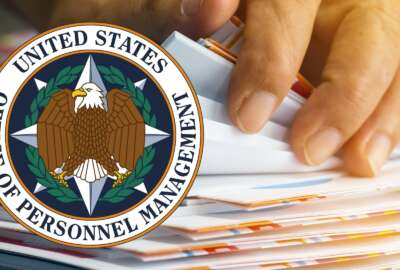

The shutdown has created a kaleidoscopic of open, sort-of-open and closed federal operations. As it spins, the effects spread wider and wider.
If the federal government’s partial shutdown was a dream, Freud would say it has manifest and latent effects.
It’s hard to see the latent effects from the outside — experiments not completed, policy left undeveloped, grantees left in limbo, software still partially coded.
The more immediate manifest effects, though, are popping up all over.
A Washington, D.C. attorney told me one of his contractor clients is worried about whether to hire people. Why? Because the E-Verify system, operated by U.S. Citizenship and Immigration Services, is down for the duration. By law, companies are supposed to run all hires’ names through E-Verify to check their eligibility to work in the United States. The question arises: If the company, or any company, hires but fails to get e-verification in a timely manner, is it indictable?
The online parts of government are as barren as some of the offices.
I spoke with one vendor about the National Insitute of Standards and Technology computer security team’s Special Publication 800-63. When I tried to call it up, the NIST web site displayed the modern day equivalent of the Indian-head test pattern: Unavailable.
You’ve read and heard the countless stories of restaurants, food trucks and hotels seeing their business drop. The Washington Post had an anecdote about a brewery that can’t bring out its latest ales. Who knew it required federal approval for a label on a beer bottle?
Hundreds of thousands of furloughed and exempted federal employees are about to reach their first day without a paycheck. They’ve received many offers of help. Two non-profit organizations I’m personally involved with are willing to wait on membership dues. At least one federal credit union, PenFed, is offering zero-percent bridge loans to its direct-deposit members. I appeared on CBC News: The National in a piece that included a D.C. bagel vendor offering free goodies to unpaid feds.
The sub-industry of federally-focused conferences is taking a hit, as well. Associations, media companies, commercial conference organizers, and agencies themselves have been postponing or canceling events requiring federal speakers and attendees. Even exempted federal managers on the job are reluctant to “speechify” as if everything is normal. Sponsors pull back because they don’t want to reach empty rooms. Postponements and cancellations also drag rental venues and caterers into the affected mix.

For contractors doing business with the government, the situation looks bleaker. I don’t know what’s worse, suspending work or having to go in and support federal operations with only the hope you’ll be paid. The SEC, for instance, published a list of contracts it says “are required to support certain SEC functions” during the shutdown. It adds up to more than 100 contracts and with about 75 companies.
The shutdown has created a mixed bag, a kaleidoscopic mishmash of open, sort-of-open and closed federal operations. As it spins, the effects spread wider and wider.
Copyright © 2025 Federal News Network. All rights reserved. This website is not intended for users located within the European Economic Area.
Tom Temin is host of the Federal Drive and has been providing insight on federal technology and management issues for more than 30 years.
Follow @tteminWFED
